
Table of Contents
Best Free AI Tools for Content Writing in 2025
Introduction

The blank page problem is universal. Whether you’re a student staring at an unfinished essay, a marketer drafting campaigns, or a professional polishing reports, writing often feels like the hardest part of the job. Free AI writing tools promise relief — not by replacing your voice, but by helping with drafts, rewrites, grammar, and summaries.
In 2025, the AI writing market is valued at $6+ billion and growing fast. But most “free” tools are either trials in disguise or lock critical features behind upgrades. This guide highlights tools that actually give you ongoing free value, their real limitations, and which type of writer each is best for.
1. Rytr – Quick Drafts on a Budget (https://rytr.me)

Free Plan: ~10,000 characters/month.
Strengths:
40+ content types (ads, blogs, emails).
20+ tones (formal, witty, persuasive).
Built-in plagiarism checker.
Why It Stands Out:
Rytr is best for short-form marketing content — ad copy, captions, product descriptions. Agencies report saving up to 40% drafting time.
Drawbacks:
Free limit = only 2–3 short blogs per month.
Long-form outputs can feel formulaic.
Limited SEO support.
Best For: Marketers or freelancers needing quick creative sparks in multiple languages.
2. Grammarly (with AI Prompts) – Proofreading + Polishing (https://www.grammarly.com)
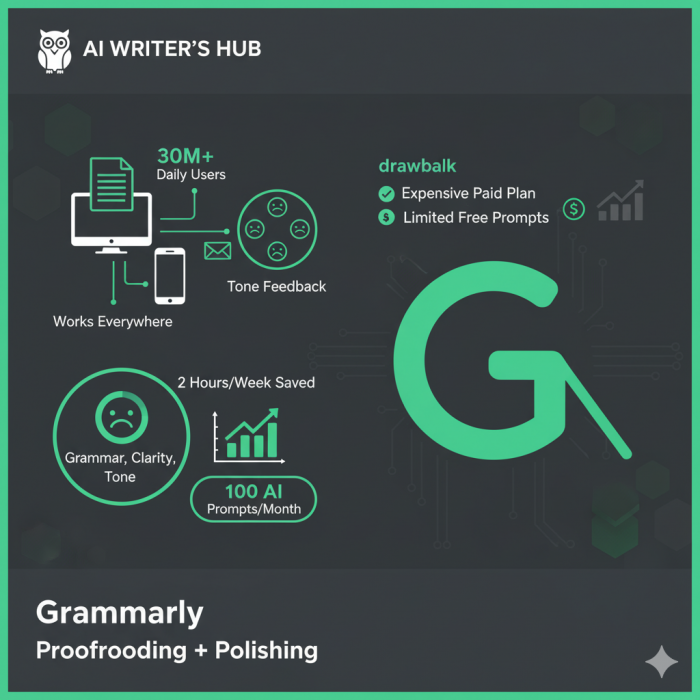
Free Plan: Grammar, clarity, and tone feedback + ~100 AI prompts/month.
Strengths:
Market leader with 30M+ daily users.
Works everywhere: Google Docs, Outlook, Word, Slack.
Saves professionals ~2 hours/week editing.
Why It Stands Out:
Grammarly is still the go-to tool for error-free writing. Its tone detector helps adapt messages for different audiences (formal, casual, confident).
Drawbacks:
100 monthly prompts run out fast.
Paid plan is expensive ($30/month).
Generative AI rewrites can sometimes “flatten” creative writing.
Best For: Students and professionals who need error-free, polished communication daily.
3. Wordtune – Rewriting with Clarity (https://www.wordtune.com)
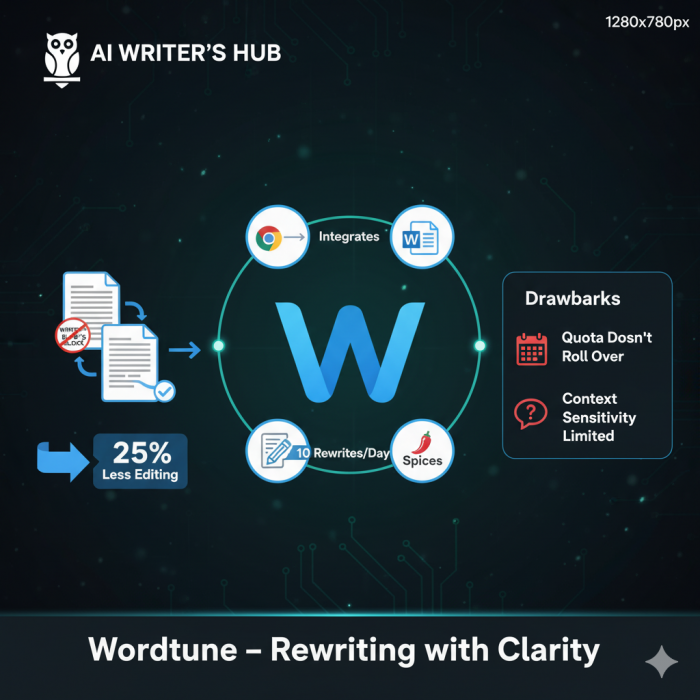
Free Plan: 10 rewrites/day.
Strengths:
Sentence-level rewrites for better flow.
“Spices” feature adds variety (helpful against writer’s block).
Integrates with Chrome + Word.
Why It Stands Out:
Great for editing dense drafts into crisp, readable text. Writers report 25% less editing time when using Wordtune for client documents.
Drawbacks:
10 rewrites/day = about 1 page of edits.
Sometimes too literal; context sensitivity limited.
Quota doesn’t roll over.
Best For: Professionals and non-native English speakers refining tone and clarity.
4. Notion AI – For Teams Already in Notion (https://www.notion.com/product/ai)
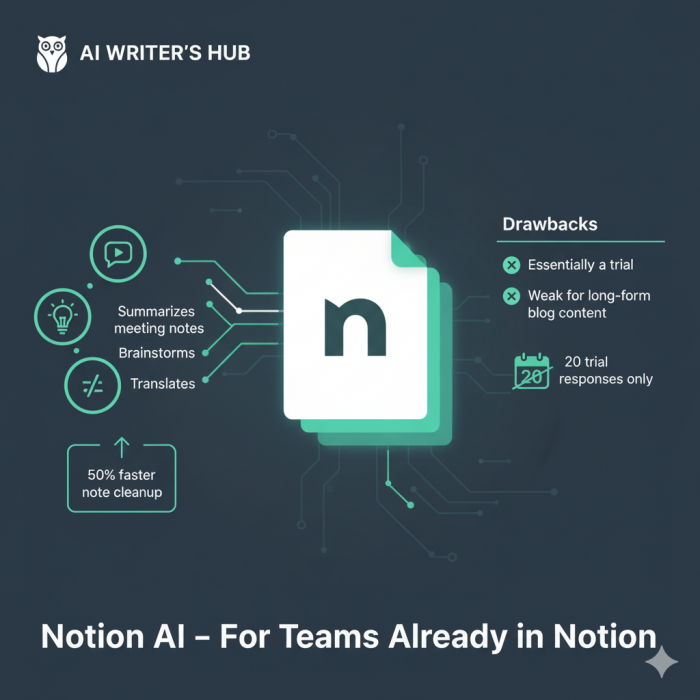
Free Plan: ~20 trial responses only (no ongoing free plan).
Strengths:
AI inside Notion docs — no app switching.
Summarizes meeting notes, brainstorms ideas, and translates.
Teams report 50% faster note cleanup.
Why It Stands Out:
For teams already using Notion, it saves time on knowledge management and summaries.
Drawbacks:
Essentially a trial — not a real free plan.
Weak for long-form blog content or SEO.
Best For: Teams in the Notion ecosystem who value speed in note-taking and collaboration.
5. QuillBot – Paraphrasing Powerhouse (https://quillbot.com)
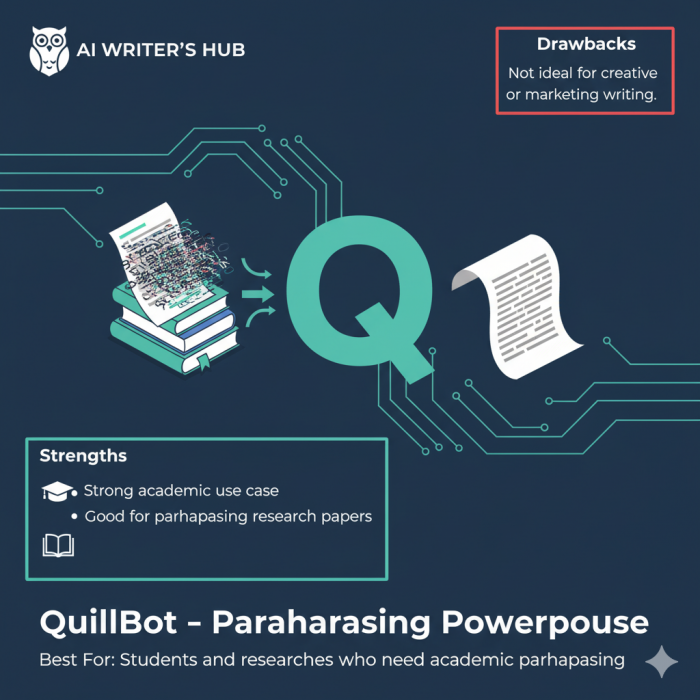
Free Plan: Limited paraphrasing and summarization.
Strengths:
Strong academic use case.
Good for paraphrasing research papers.
Drawbacks:
Not ideal for creative or marketing writing.
Best For: Students and researchers who need academic paraphrasing.
6. JustDone AI – Utility Toolkit (https://justdone.com)
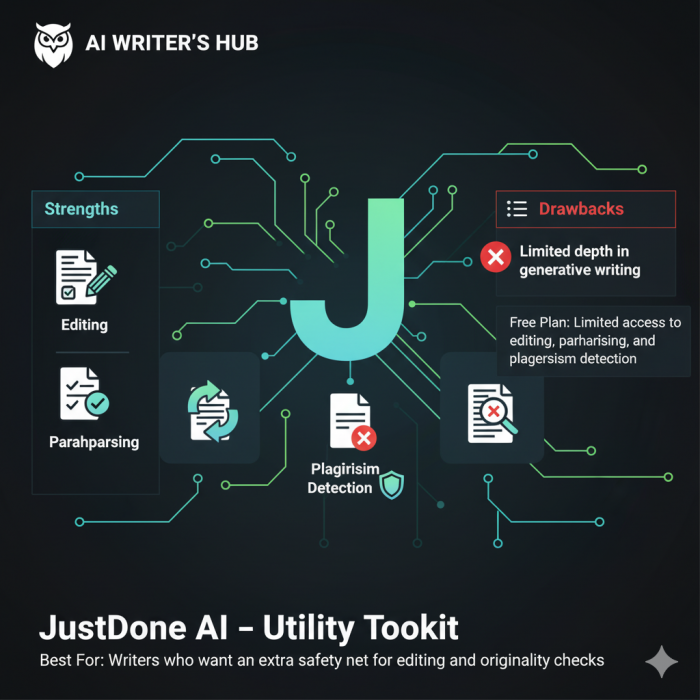
Free Plan: Limited access to editing, paraphrasing, and plagiarism detection.
Strengths:
Useful as a backup tool for quick checks.
Includes plagiarism scanning (rare in free plans).
Drawbacks:
Limited depth in generative writing.
Best For: Writers who want an extra safety net for editing and originality checks.
Quick Comparison
| Tool | Best For | Free Limitations | Standout Use Case |
|---|---|---|---|
| Rytr | Drafting short-form text | 10k characters/month | Social posts, product copy |
| Grammarly | Proofreading & polishing | 100 AI prompts/month | Emails, reports, essays |
| Wordtune | Rephrasing & clarity | 10 rewrites/day | Client docs, academic writing |
| Notion AI | Team/workspace productivity | 20 trial responses | Notes, collaboration |
| QuillBot | Academic paraphrasing | Limited paraphrasing | Research, citations |
| JustDone AI | Utility add-on | Limited features | Editing + plagiarism checks |
Red Flags to Watch
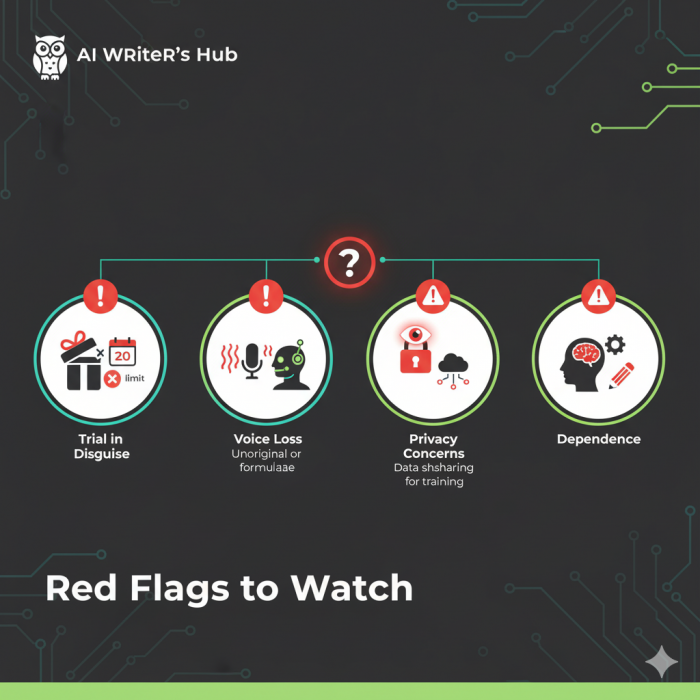
“Free” that’s really a trial: Notion AI, many niche tools.
Voice loss: Over-rephrasing can make text sound robotic.
Privacy: Always check if your content is used for training.
Dependence: Use AI for speed, but keep your voice authentic.
Conclusion
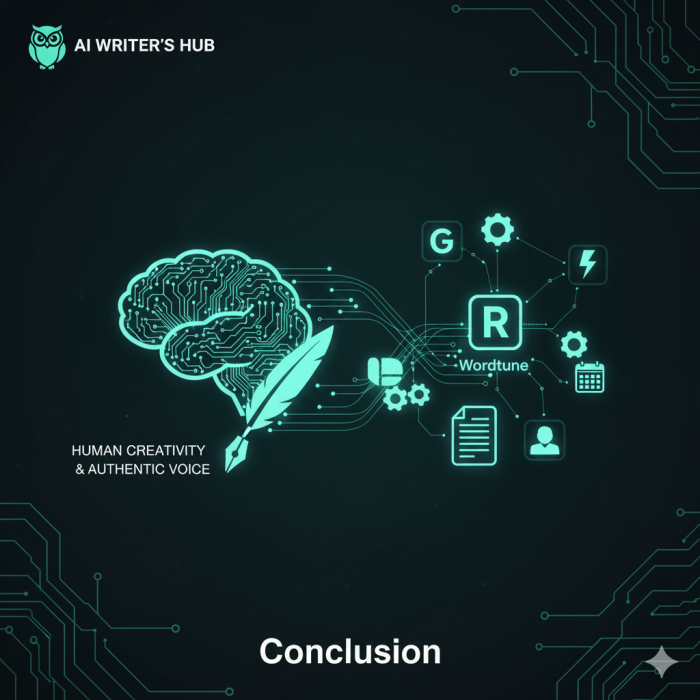
Free AI writing tools in 2025 aren’t silver bullets — but they’re powerful assistants when used smartly. Grammarly and Wordtune shine for everyday writing and editing. Rytr is best for quick creative drafts. Notion AI speeds up team workflows but isn’t truly free. QuillBot and JustDone AI fill niche needs in academia and editing.
The trick is matching the tool to your workflow. Use AI to handle the mechanics — grammar checks, paraphrasing, summaries — while keeping your own ideas and voice at the center. That’s where your writing remains human, relatable, and trusted.


Comments